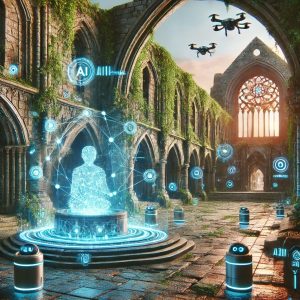It’s nice to see that more & more businesses embracing the shift to digital working in this uncertain time (COVID-19 protocol). But a sizable portion of the (Dutch) education such as Elementary Schools, aren’t really enthusiastic about making the switch to go digital. They think:
- It’s hard;
- Not working;
- Don’t know where to start or;
- Just don’t want to try anything new
I believe it’s NOW the time that the (Dutch) Education system needs to embrace the digital transformation. (I know a small number does, but that’s not enough). I wrote about my opinion of the Education system before, and why I believe it sucks – see here.
The education system is still performing the same way as it always has. Although the education curriculum has evolved, the way it is taught remains largely unchanged. Companies are looking for employees who can work with both digital and human colleagues. Currently, there is a yawning gap between companies’ need for certain skills and their availability in the marketplace.
With the fast pace of modernisation, the ratio between cost and effectiveness of education is worsening at all levels i.e. primary, secondary and tertiary. Faced with the challenge of increasing skills and controlling costs, the education system has no alternative but to focus on digital education.
It does not merely involve installing a PC in the back of a classroom or issuing iPads. It means totally renewing the teaching toolbox and the role of the teachers.
Current status at my home: I’m receiving multiple updates for both of my sons via different sources e.g.: (1) E-mail, (2) What’s App, (3) ClassDojo, (4) Padlet and don’t forget the different ways of making their homework (via (5) books, (6) Junior Einstein online, (7) other websites, downloading documents via (8) Google drive, (9) Dropbox (is it getting cloudy already?) and everything with a (10) planning on paper — and without their teacher instructions. I get it that my kids are lost 🙂 I just see that it’s hard for the teachers and students to cope with the new way of working. The school is trying Microsoft Teams but it seems not everyone (parents) find it easy and don’t want to adopt it. Don’t get me wrong, I’m really pleased, how the teachers are handling this uncertain period. But as a single mum – working full time from home now (due to covid19) and full time home schooling my sons, 9 year & 10 year old, I find it extremely challenging. On top of a normal working day of 8 hours, I can add 3-4 hours schooling time per child. I wish there was a robot to help me out!
Luckily I love challenges and we will manage, but it’s heartbreaking to see that we live in the 21st century, with lots of online tooling available. Cool gadgets and very advanced new technologies such as:
- Unhackable internet
- Hyper-personalized medicine
- Digital money
- Anti-aging drugs
- AI-discovered molecules
- Satellite mega-constellations
- Quantum supremacy
- Tiny AI
- Differential privacy
- Climate change attribution
But we can’t manage to provide a new way of education for our new generation. We have all the tools in place but not everyone is ready or willing to change for this new digital era.
View this post on InstagramA post shared by Lewis Howes (@lewishowes) on
Besides the 10 things Lewis Howes explains, children also need to work on the ability as: problem solving, communicating and creativity.
I think most challenging is right now the behavior change. So how can we accelerate this process? (good question for a new Blog). Due to COVID-19 everyone has been forced to go digital, if they like it or not. And that’s a good thing, if you asked me. But still not enough.
How are you coping with your fulltime job and home schooling your kid(s)?
What do you think about the opportunity to embrace this digital transformation?
What do you think we can do to help the education excel?
If I ask my sons, it’s quite easy to embrace digital and they love to engage digital. (let’s face it, they are growing up in a digital age). I’m really grateful to hear my sons opinions. They think: (older) people make it too difficult, just try it & try again and then you will see how easy it is. My oldest son took the first step to organize an online meeting with all his class mates and teachers, to show them that it’s not hard, difficult or not working. But most importantly to experience together some digital chitchat to stay connected with each other.
One of the book I recently read was: Why students don’t like school –
It reveals-the importance of story, emotion, memory, context, and routine in building knowledge and creating lasting learning experiences. The advice I took from the book are:
Students don’t like school because those involved – including educational institutions – haven’t fully got to grips with some essential cognitive principles involved in learning. Two types of memory are involved: long-term and working memory. The best strategies for learning involve pattern recognition and “chunking” information for the long-term memory. The bottleneck of working memory is best avoided. Furthermore, we should resist the notion that intelligence is entirely genetically determined, or that we all have a learning “type.” Therefore, by giving students the right context and content, and making sure educators keep learning too, we can ensure that students will learn a great deal more efficiently. And who knows – maybe they’ll even start to like school!
If you’re in close contact with children, either in a mentoring role or as a parent, impress upon them that skill and intelligence are not settled from birth. It’s important for children to understand they can achieve almost anything with enough determination and practice. Remember: A piano virtuoso is not born with harmonic knowledge and muscle memory; those are learned.
I can’t wait to see the first Augmented Reality (AR), Virtual Reality (VR) and Mixed Reality tools coming up. They already exist and this will be a big added value for a lot of children. Please don’t forget to still get in touch with each other, to start a normal conversation Face-to-Face and feel each others energy. Therefore I believe it would be great to have all of these new technologies mixed in the class room.
The children are ready, but when are we?
If you are reading this and you own or working for a organization who wants to make the difference in education and you would like someone who can spread the world. Then please drop me a note, would love to help!
Love, Marietta.


